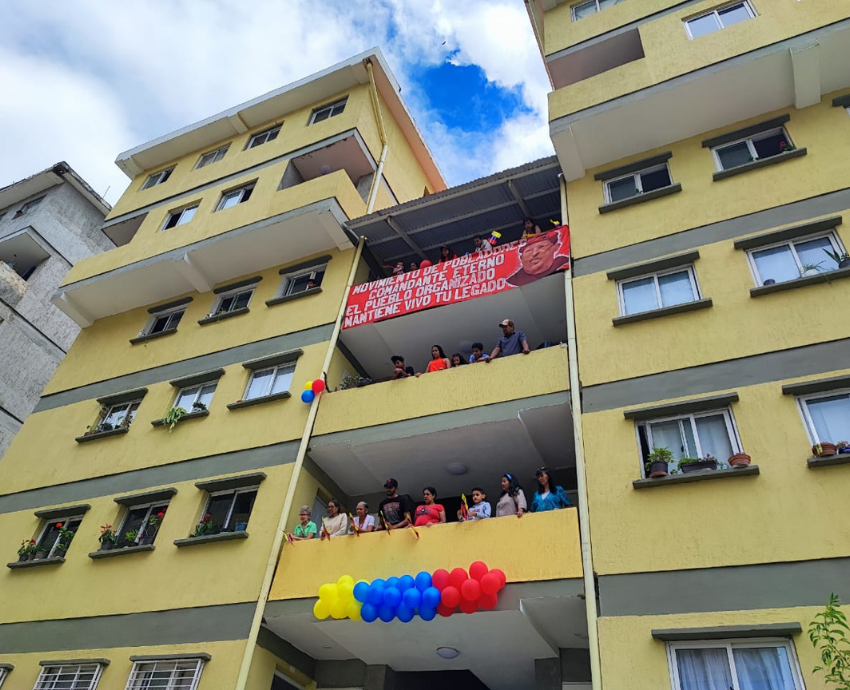
A record four million homes were delivered to Venezuelan citizens on April 7 last year, as part of a social housing program called the Gran Misión Vivienda Venezuela (the Great Housing Mission of Venezuela, GMVV).
The Bolivarian government aimed to build 500,000 social homes for the most disadvantaged by the end of last year, as part of a public policy projecting to deliver five million low-cost homes for working people by 2024.
The GMVV is one of a series of social missions — around education, health, social welfare and other aspects of society — established by the Bolivarian Revolution, commenced in 1999 under President Hugo Chavez to challenge the conservative and neocolonial status quo of a traditional Venezuelan society dominated, like most of Latin America, for many decades by the imperialist United States of America.
Venezuelan President Nicolás Maduro celebrated the milestone last year, saying it was a “historic” event and a “world record”. “Nothing and no one is going to stop us,” he said.
The GMVV’s four millionth house was handed over in an urban development in the Sotillo municipality in Anzoátegui state. During the ceremony, Governor Luis Marcano proudly reported that “those who today inhabit these 200 homes were working on [their] construction”.
Maduro said Venezuela is a world leader in guaranteeing housing rights, despite suffering under a brutal economic blockade imposed by the US and the European Union.
“We are the government that has built the most houses, [but] you will never see this [news] in the big Western media, which have waged a media war against Venezuela and those we have defeated,” Maduro said. He emphasised that the milestone had also been achieved in the midst of the COVID-19 pandemic and “demonstrates the success of the Bolivarian socialist model”.
Maduro announced the revival of production by the state-owned company Petrocasa, to guarantee the supply of Polyvinyl Chloride (PVC) for the manufacture of doors, panels, windows and other inputs.
GMVV was initially launched by Chávez to provide safe and dignified homes to families affected by intense rain and landslides in 2010–11. Subsequently, the program was extended to the rest of the population to tackle affordable housing shortages. Under the program, the government builds and allocates homes to low-income people at a low cost, or free of charge, depending on their income.
Residents have access to a long-term payment plan based on their means, and payments are calculated based on the building cost of the house and not the market value of the property.
Each resident retains their house for life and can pass the house on to their children. If a resident wishes to sell their house within 30 years of taking possession, the government has first refusal. Residents do not have full ownership rights over their homes.
Furthermore, the program often provides social infrastructure such as schools, subsidised food markets and recreational and green spaces in the neighbourhoods. Houses are handed over equipped with basic household appliances, Venezuela Analysis reported on March 8.
Venezuela’s social programs resulted in extreme structural poverty dropping from 10.8% in 1998 to 4.3% in 2018, according to the last available report published by the country’s National Statistics Institute (INE).
The GMVV’s reach hinges on popular power, with over 70% of the constructions reportedly self-managed by communities, with financial and logistical support from government institutions. This helps to significantly reduce costs.
Contrast this ambitious five million homes commitment to the limited announcement by the Anthony Albanese Labor government in neoliberal capitalist Australia of its controversial Housing Australia Future Fund 2023. This A$10 billion investment fund is supposed to generate at least A$500 million a year to fund a mere 30,000 social and affordable houses over the next five years.
We in this wealthy country can learn a lot from the experience of the Bolivarian Revolution in Venezuela.